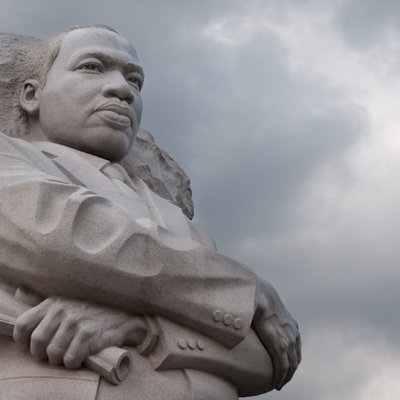pararse(
pah
-
rahr
-
seh
)A reflexive verb is a verb that indicates that the subject performs an action on itself (e.g., Miguel se lava.).
1. (to halt)
Siempre se para a saludarnos cuando nos ve.She always stops to say hello when she sees us.
2. (to rise) (Latin America)
Regionalism used in Latin America: all the countries in South America, Central America, and the Caribbean. Does not include Spain.
El público se paró cuando terminó el pianista.The audience stood up when the pianist finished.
b. to get up (from bed) (Central America) (Mexico)
Regionalism used in Central America: Guatemala, El Salvador, Honduras, Nicaragua, Costa Rica, and Panama
Regionalism used in Mexico
Siempre se para tarde los fines de semana.He always gets up late on weekends.
A pronominal verb always uses a reflexive pronoun. (e.g., Te ves cansado.).
a. to stand on end
Se te parará el pelo con esa película.That movie will make your hair stand on end.
a. to stop
El carro se paró porque le falta aceite al motor.The car stopped because the engine needs oil.
parar
A transitive verb is a verb that requires a direct object (e.g., I bought a book.).
5. (to halt)
¡Paren el tráfico! Alguien está tirado en la calle.Stop the traffic! Someone's lying in the road.
6. (to block)
a. to save
Fabianski paró el balón, evitando un gol de Muller.Fabianski saved the ball, blocking a goal by Muller.
b. to stop
El portero paró el tiro libre y ganó el partido.The goalkeeper stopped the free kick and won the game.
c. to intercept
García lanzó el balón y Hernández lo paró.García kicked the ball and Hernandez intercepted it.
7. (to avoid)
a. to block
El defensa logró parar el ataque del delantero.The defender managed to block the striker's attack.
b. to ward off
El boxeador logró parar varios golpes, pero al final su contrincante lo tumbó.The boxer managed to ward off several blows, but in the end his opponent knocked him down.
c. to parry
Estamos aprendiendo a parar en las clases de esgrima.We're learning how to parry in our fencing classes.
8. (to erect) (Latin America)
Regionalism used in Latin America: all the countries in South America, Central America, and the Caribbean. Does not include Spain.
a. to stand up
Paren el muñeco en la mesa para terminar de arreglarle el traje.Stand the doll up on the table so I can finish fixing its outfit.
b. to raise
Paren el librero allí cerca de esa pared, por favor.Raise the bookshelf over there by that wall, please.
An intransitive verb is one that does not require a direct object (e.g., The man sneezed.).
9. (to halt)
10. (to cease)
a. to stop
¡Por favor, para de cantar! ¿No ves que estoy estudiando?Please stop singing! Can't you see I'm studying?
12. (to strike) (Latin America)
Regionalism used in Latin America: all the countries in South America, Central America, and the Caribbean. Does not include Spain.
a. to go on strike
El sindicato ha dicho que paran el martes.The union said to go on strike on Tuesday.
13. (to lodge)
a. to stay
La pareja dijo que planean parar en Madrid por tres noches.The couple said they plan to stay in Madrid for three nights.
14. (colloquial) (to spend time with; used with "con") (South America)
A word or phrase that is commonly used in conversational speech (e.g., skinny, grandma).
Regionalism used in South America: Argentina, Bolivia, Chile, Colombia, Ecuador, Paraguay, Peru, Uruguay, and Venezuela
a. to hang out (colloquial)
A word or phrase that is commonly used in conversational speech (e.g., skinny, grandma).
Miguel dijo que iba a parar con Ronaldo este viernes.Miguel said he was going to hang out with Ronaldo this Friday.
Examples
Phrases
Machine Translators
Translate pararse using machine translators
Conjugations
| yo | |||||
|---|---|---|---|---|---|
| tú | |||||
| él/ella/Ud. | |||||
| nosotros | |||||
| vosotros | |||||
| ellos/ellas/Uds. |
Random Word
Roll the dice and learn a new word now!
Want to Learn Spanish?
Spanish learning for everyone. For free.



















